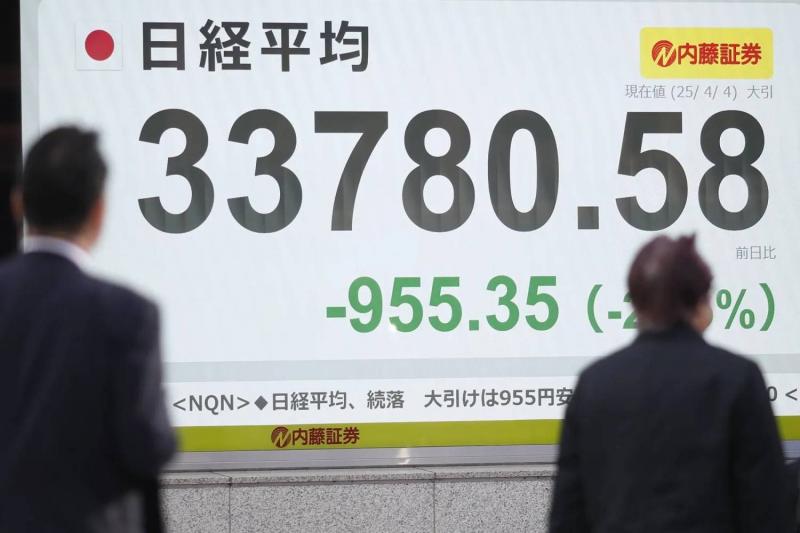Panic grips Asian-Pacific financial markets today (Monday) as U.S. President Donald Trump insists on his widely-applied tariffs on other countries, signaling another dark day for global stock exchanges. The markets opened with a sharp decline following Trump's stringent tariffs taking effect on Saturday. By midday, Hong Kong saw a significant drop of 12%, marking its worst session in 16 years, with Taipei down 9.7%, Beijing 8.7%, Tokyo 6.4%, Shanghai 6.3%, Seoul 4.9%, and Mumbai 3%.
European markets are bracing for a sharp downturn as trading begins on Monday. The trade tensions escalated after China's announcement on Friday—post the Asian markets' weekend closure—of reciprocal tariffs, raising fears of a trade war that could severely impact the global economy.
Stephen Innes, an analyst at "SPI Asset Management," commented that this situation is more than just a trade dispute; it represents a total reshuffle of the global economic system, which is being dismantled. Meanwhile, numerous countries are striving to negotiate exemptions with Trump.
U.S. Treasury Secretary Scott Bessie said on NBC: "Over fifty countries have contacted the government about reducing their tariffs and currency manipulation." Trump had imposed a general 10% tariff on all U.S. imports, accusing economic partners of "plundering" America.
The hit to global trade will intensify on Wednesday with additional tariffs on a list of countries with greater exports to the U.S. than imports, including a 34% tariff on China and 20% on the EU. Trump emphasized on "Truth Social" that the only way to resolve the trade deficit with China, the EU, and others is through tariffs, which will generate billions for the U.S.
In retaliation, China announced additional tariffs of 34% on U.S. imports. Vice Minister of Commerce Ling Ji assured representatives of American companies on Sunday that China’s countermeasures aim to protect legitimate rights of businesses, including American firms in China, and to redirect the U.S. towards multilateral trade systems, asserting China remains a promising land for foreign investments.
The EU countries engaged in intense talks over the weekend ahead of a Monday meeting in Luxembourg to decide on a "European response to the U.S." British Prime Minister Keir Starmer remarked on Sunday that the world, as we knew it in terms of trade, has come to an end.
"Recovery Remedy"
Trump, aboard Air Force One on Sunday, implied that sometimes harsh measures are necessary for recovery in response to the effect on stock markets. Futures, or market indicators, suggested further declines on Wall Street Monday, following significant drops on Thursday and Friday.
Peter Navarro, Trump's trade advisor, said on Fox News: "We can't lose money if we don't sell, and the smart strategy now is not to panic."
Israeli Prime Minister Benjamin Netanyahu is set to meet Trump at the White House on Monday to discuss tariffs, notably the 17% rate imposed on Israel, alongside discussions on Gaza and Iran.
Separately, Vietnam’s Communist Party chief To Lam requested a "minimum of 45 days" delay in implementing the 46% tariffs on Vietnamese exports to the U.S. to reach a swift agreement.
Bessie cautioned that this is not a negotiation that can be resolved in mere days or weeks, indicating that stringent tariffs may persist for several months at least.
White House chief economic advisor Kevin Hassett noted that countries offering negotiations are aware of the looming high tariffs. While addressing possible economic impacts, he acknowledged "potential price increases" but doubted there would be a heavy impact on U.S. consumers.
However, most economists predict the new tariffs on imported goods may accelerate inflation and reduce consumer spending in the U.S.



